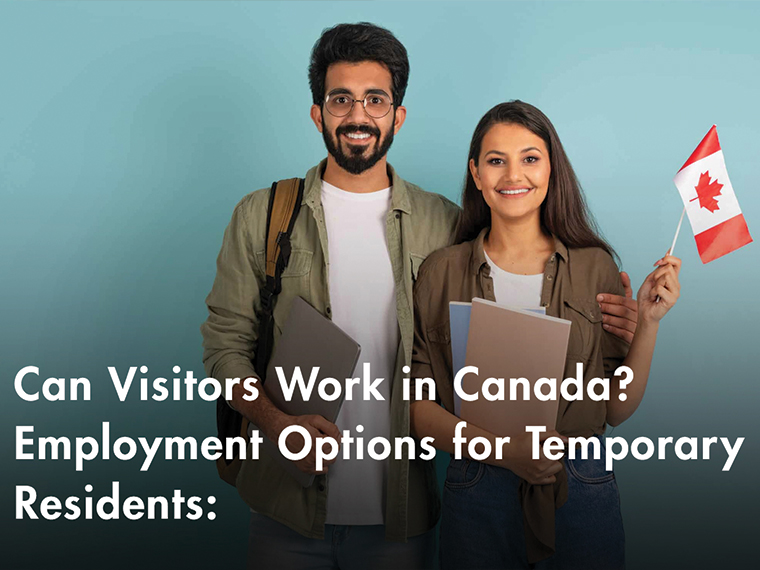
What is the Start-Up Visa Program?
The Start-Up Visa (SUV) programme in Canada enables international company entrepreneurs to immigrate to the country permanently. The programme was established by the Canadian government to draw in business people from across the world and to provide them with the resources and assistance they need to succeed in their ventures. In exchange, Canada depends on such companies to expand, contribute to the national economy, and provide employment for Canadians.
When it comes to immigration policies, Canada is highly supportive. The moment is now if you're starting the process of gaining Canada citizenship by investment. The vast majority of visa schemes in Canada's various provinces are for permanent residents. To apply for Canada citizenship by investment follow the correct procedures. In order for you to succeed in this initiative, we have also included some sound advice. So, let's get going.
Why Canada?
Canada has strong environmental restrictions, a top-notch healthcare system, and is one of the safest nations to give a great quality of life, while consistently getting top ranks in overall assessments of industrialised nations. For individuals looking to immigrate or relocate, Canada will undoubtedly be attractive due to its leading educational system, the constitutional commitment to religious, racial, and cultural tolerance, the high value of its passports for international travel, and its membership in the G8 and NAFTA.
Program Eligibility for Canada Citizenship by Investment:
The conditions established by the Canadian immigration authorities for business people wishing to apply for permanent residence in Canada under the SUV programme are listed below:
Getting a Letter of Support from the Designated Organisation:
Your startup idea or project must have backing from one or more of the following authorised organisations, particularly Venture capital funds, Angel investor groups, and Business incubators, in order to qualify for the Start-up Visa Program. Business associations known as designated organisations have been given the go-ahead to contribute to or support potential start-ups. The decision of which business proposals to consider will be made by the organisations based on their preferences. For different organisations, the intake procedures are varied, as do the criteria used to evaluate proposals.
For example, you may be required to explain your company proposal in person or to submit a complete project proposal. Organisations frequently evaluate the potential of your strategy to see whether or not it will succeed. If your plans are viable and sound, you will be granted a Letter of Support.
Having a qualifying business:
A qualified business is one that satisfies the standards outlined here:
-
The applicant must own 10% or more of the voting rights and must jointly own more than 50% of the total voting rights linked to all of the corporation's outstanding shares at the moment in order to get a commitment from a recognised organisation.
-
The administration of the firm and its main activities should be from Canada once the applicant has been granted permanent residency.
Language requirements
Although English and French are Canada's two official languages, candidates must be skilled in at least one of them. The language proficiency will be evaluated by the immigration officers throughout numerous sessions. Improving one's communication and language abilities will help one perform in language examinations administered by any one of the formally recognized bodies of Immigration, Refugees and Citizenship Canada (IRCC). In Canadian Language Benchmark (CLB), one has to score:
-
At least 5 in the marking in speaking, writing, listening, and reading in English.
-
In Niveaux de Compétence Linguistique Canadiens (NCLC), at least 5 in the marking in speaking, writing, listening, and reading in French.
In addition, the authenticity of the applicant's officially submitted transcripts, a letter attesting to their good standing, and any diplomas, degrees, or certificates will be checked to verify if the requirements have been met.
Things to remember: The examination costs must be covered by the applicant. The application should be submitted with records of the test results. The application procedure will be rejected if unsuccessful.
Requirements for Canada Citizenship by Investment:
The Canadian government does not provide monetary support to immigrants with fresh start-up visas. You must demonstrate your financial ability to sustain yourself and your dependents after you arrive in Canada when you appeal. This money cannot be borrowed from a private entity. Your required quantity will vary based on the size of your household. The figures mentioned below are subject to revision on a yearly basis. Here's an overview of the following:
Source: Immigration, Refugees and Citizenship Canada (IRCC)
Even though these are the bare minimums, it is advised that you migrate to Canada with as much money as you can. You will require every bit of money you can collect to support a living for your family while your firm is still in the early stages because new businesses and startups don't really succeed straight away. Learn the cost of living in the area of Canada where you want to settle. Where you choose to live will affect the cost of living.
How to Apply
The entire process of applying for Canada citizenship by investment happens online. For preliminary qualifying, you must submit a thorough Curriculum Vitae together with the other basic essential papers. Then you must get the Letter of Support. The selected company must have accepted your defined strategy and provided you with a support letter as well as an IRCC Commitment Certificate. Finally, you apply for Permanent Residency with your investment letter and other required documentation.
Not Sure Where to Begin?
We at Vazir Group are happy to answer your questions regarding this and assist you in applying for the Canadian Startup Visa. Anyone applying for the programme may receive timely and affordable advice from our knowledgeable immigration specialists. The investment to be made must be carefully considered, and given the size of the investment, we advise engaging a lawyer to reduce mistakes. Vazir Group will support you as you start your positive transition in Canada and make sure of your strategic choices.





